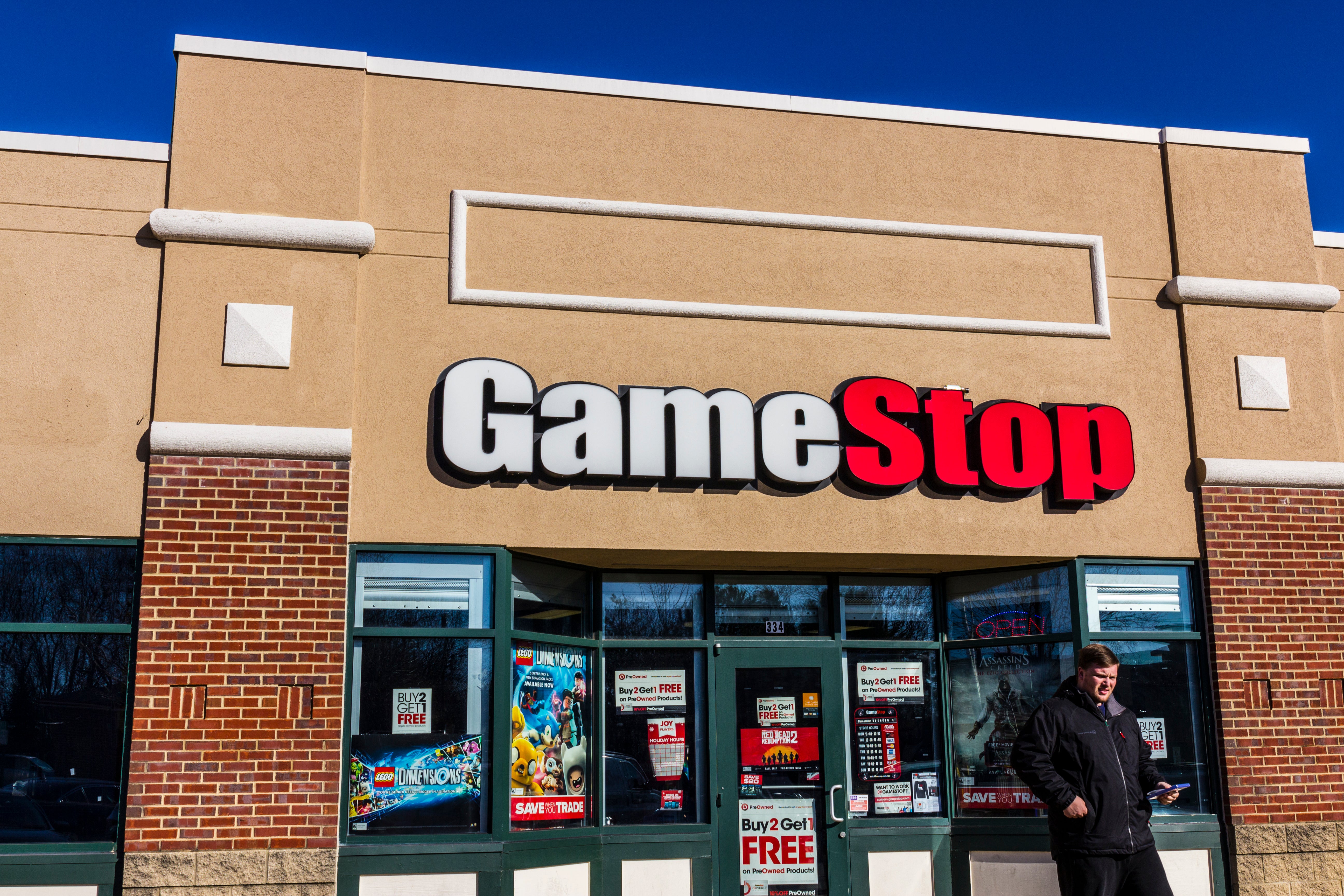Hedge funds and short-selling: How and why Gamestop shook the stock market
Online traders have delivered a multibillion-dollar message to big investors but the situation raises important questions about short-selling, social media and the stock market, writes Ben Chapman


Your support helps us to tell the story
From reproductive rights to climate change to Big Tech, The Independent is on the ground when the story is developing. Whether it's investigating the financials of Elon Musk's pro-Trump PAC or producing our latest documentary, 'The A Word', which shines a light on the American women fighting for reproductive rights, we know how important it is to parse out the facts from the messaging.
At such a critical moment in US history, we need reporters on the ground. Your donation allows us to keep sending journalists to speak to both sides of the story.
The Independent is trusted by Americans across the entire political spectrum. And unlike many other quality news outlets, we choose not to lock Americans out of our reporting and analysis with paywalls. We believe quality journalism should be available to everyone, paid for by those who can afford it.
Your support makes all the difference.A battle between an army of amateur investors and multi-billion-dollar hedge funds has ignited a trading frenzy, sending the share prices of some previously unfancied companies surging while delivering a kicking to the short-sellers who bet against them.
One unlikely beneficiary has been GameStop, a struggling video games retailer that has been hit hard by the pandemic.
But what is going on here? Are we really witnessing the beginning of a new era or will we soon return to business as usual?
What has happened?
Institutional investors, including the $13bn hedge fund Melvin Capital saw an opportunity to make profit from betting against GameStop's share price, or short selling.
All of this was unremarkable until users on a Reddit forum called "WallStreetBets" decided to buy into GameStop shares (or options to buy them), initially because they thought it was undervalued, then to send a message to the short-sellers.
Read more: Short-selling firm that bet against GameStop says it will stop short-selling
Acting in unison they pushed up the share price to astronomical levels causing massive losses for short-sellers. Now the battleground has shifted to other shares that have been bet against by hedge funds including BlackBerry, cinema chain AMC and American Airlines.
What is short-selling?
It's a way of profiting when the price of an asset - such as gold, oil or a company's shares - falls. It’s perfectly legal and many experts argue it is an important way to allow markets to determine the “true” price of any asset. It’s also a method of speculation that can increase volatility and reduce stability.
A short seller pays a small fee to borrow shares from someone else. Usually this is an institutional investor such as a pension fund. The short seller then sells the shares at the market rate.
Follow live: Latest GameStop stock updates and news
Later on, they buy the shares back again and return them to their owner. If the price has fallen the short-seller pockets the difference between the price they sold the shares at and the price they bought them back at. If it has risen they lose money.
What happened with GameStop?
This week's events demonstrate why short-selling can be both immensely profitable and enormously risky.
GameStop’s's shares hit a low of $2.57 last year before rising to $18.84 by 31 December after a notable hedge fund decided to back the company.
The price rose steadily but other funds were betting against GameStop by short-selling large numbers of shares.
At this point, the amateur investors of WallStreetBets entered the fray. Several Reddit users called for people to pile into GameStop shares, pushing up the price to put pressure on the short-sellers - a process known as a short squeeze.
Many Reddit posts suggested that this was a way to punish hedge funds that were seeking to profit from a company’s troubles. Other users were apparently more interested in making money as GameStop’s share price soared. Some funds got involved too, hoping to profit from the momentum as the price rose rapidly.
How does a short squeeze work?
Investors successfully pushed GameStop’s share price up to more than $350 by Wednesday.
Any short seller that had borrowed GameStop shares at the start of the year and sold them in the market for $18.84 had to find another $301.16 per share to buy them back again and return them to their owner.
Since some hedge funds had borrowed and sold millions of GameStop’s shares, they were facing huge losses and had to buy the shares back to stop those losses rising further. Buying the shares back created additional demand, pushing the price up even higher.
The short squeeze had worked (although some short sellers are thought to still have yet to unwind their positions, presumably because they are hoping the price will fall and their losses will be reduced).
Why is this significant?
Battles between investors that have different views of a company’s value are common but this is perhaps the first time that ordinary investors have had the clout to cause a large fund such hefty losses. It’s important to note however that some ordinary investors are likely to lose substantial sums when GameStop’s price comes down as it has already begun to do.
GameStop’s tumultuous stock market journey demonstrates the the power that co-ordinating via social media can have and it may cause short-sellers to think again about betting against a company they think is in decline.
One short-seller that got burned has already announced a wholesale shift in approach. Citron Research has said it will now focus on investing in companies with potential to grow rather than betting against those it thinks have major problems. Other funds have cut their short positions too.
Institutional investors, including hedge funds, will have to increasingly do their research into sentiment expressed online in forums like Reddit and factor this into some of their decisions.
Democratisation of finance?
Share-dealing apps like Robinhood and the free availability online of information about companies and trading strategies have opened up investing to more and more people.
This is a positive development for those who are financially savvy enough to trade for themselves but it also opens up others to making risky bets that they don’t understand. There are always people willing to take advantage of others’ naivety, as countless banking and investment scandals demonstrate.
This is especially true with “zero-commission” options trading through apps like Robinhood, which allow people to gamble many times their initial investment with just a few button taps on their phone at any time of day or night.
It doesn’t take long to find videos on TikTok and Twitter or posts on Reddit offering highly dubious investment “tips” that could cause big losses for anyone that follows them.
Social media posts by influential stars can also cause share prices to surge or to tank. Who knows whether they stand to profit from those posts?
However, critics from within the financial services industry might be wise to look at their own houses before calling for a crackdown on the new wave of social media sages.
After all, similar, although perhaps less blatant, conflicts of interest are rife within investment banks whose analysts pump out research on assets while their traders buy and sell them. Did WallStreetBets really game the system any more than some on the real-life Wall Street have done? It’s debatable.
The GameStop story also raises some serious questions about the ethics and legality of colluding online to push up share prices. While many will feel understandable satisfaction at the “little guys” delivering a message to Wall Street, those questions need to be answered.
And it’s worth remembering that short-term trading of shares is a zero-sum game, whether it’s done by a sharp-suited trader in Canary Wharf or someone sitting in their underwear while scanning charts on TikTok.
Every dollar that a short-seller gains, someone on the other side of the trade loses and vice versa. More often than not it isn’t the hedge fund on the wrong side, it’s the little guys. Despite recent events, that’s unlikely to change any time soon.


Join our commenting forum
Join thought-provoking conversations, follow other Independent readers and see their replies
Comments